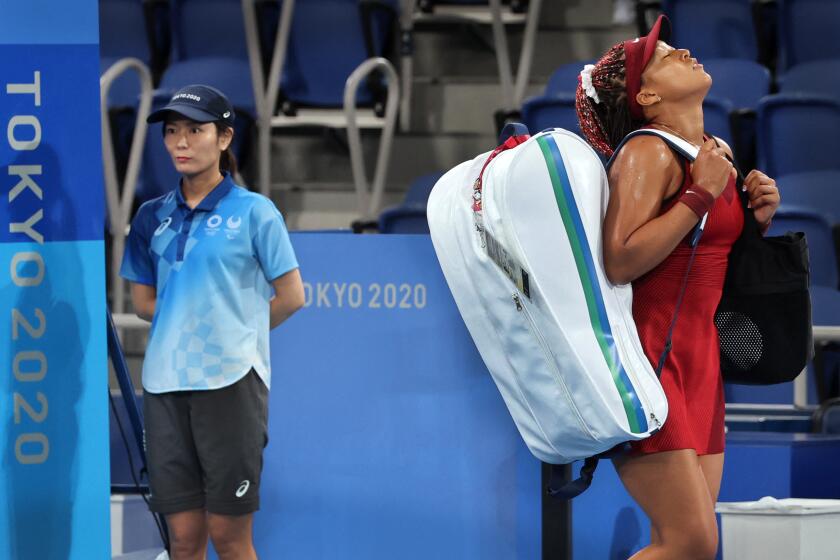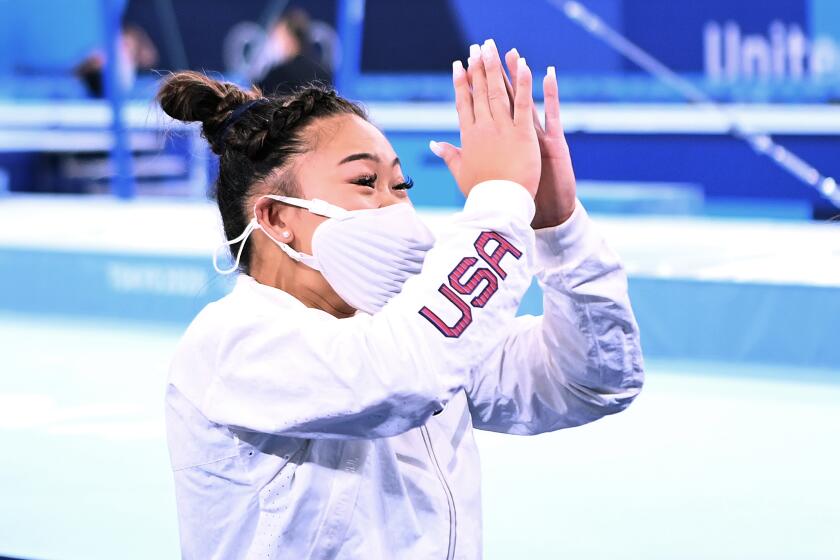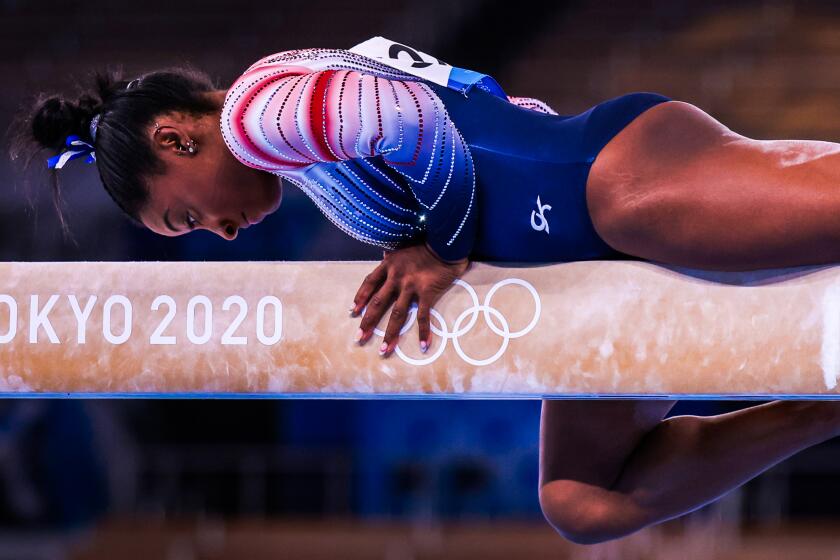These Olympics have often made for frustrating TV. Here’s how to fix it

- Share via
As we’ve discussed here at The Times throughout the Tokyo Olympics, NBC, which broadcasts the Summer and Winter Games in the U.S., faced many challenges beyond its control when it came to turning the biannual event into compelling viewing, especially this year. And at least some elements of the Olympic telecasts we’re nostalgic for, whether measured in ratings or “buzz,” are unlikely ever to return.
But that doesn’t mean there isn’t room for improvement, even within the constraints of the digital age. Though there have been readers of our Olympic TV coverage who’ve reached out to say we were being too hard on NBC, many others echoed our frustrations — and enumerated their own. So, with NBC locked in to televise the Olympics (at least) through 2032, The Times asked four staffers who’ve been watching the Tokyo Games on TV to answer a simple question: How would you fix the Olympics?
Here are their answers.
The complete guide to home viewing
Get Screen Gab for everything about the TV shows and streaming movies everyone’s talking about.
You may occasionally receive promotional content from the Los Angeles Times.
Greg Braxton, senior writer: I’m a sucker for the Olympics, and my memories of years past popped into my head as I settled in to watch this year’s games — the thrill of watching Carl Lewis and Edwin Moses, the amazing collision between runner Mary Decker and the barefooted Zola Budd, the exciting triumph of Caitlyn Jenner. And don’t forget Lionel Richie performing an elaborate “All Night Long” at the closing ceremonies of the Los Angeles Games in 1984.
I don’t expect I will have the same warmth roll over me when I look back on this summer’s Games. True, the Simone Biles drama was unforgettable and enlightening. But I also know that I probably watched more young people skateboarding than I ever have, which raises the question: Why did I watch that, and why was that an Olympic event that got such heavy exposure in NBC’s prime-time programming block?
It’s fair to argue that it’s not apt to use this year’s Games as a standard for what’s good and what’s bad about Olympics coverage when many things went wrong or were out of control — the COVID-19 pandemic, athletic disappointments and shortfalls, horrible weather, the absence of energy from live fans, and more.
The Times TV team discusses watching an often deflating, thoroughly chaotic Olympics — and why NBC’s approach to televising it is part of the problem.
But there is much room for improvement. This year’s coverage was used as a tool to promote a relatively new streaming service, Peacock. NBC showcased skateboarding and golf while sidelining the live coverage of the match where Naomi Osaka, arguably the greatest female athlete alive, was ousted from her home Games. By spreading itself over so many channels, viewers were constantly confused as they battled a maze to find out when and where to watch.
The other main area for improvement? Olympic coverage cannot act like the Games are taking place in a bubble. A cloud of racism came alongside the dramas of Biles and Osaka, but that fact was scarcely dealt with during the broadcasts. There were numerous opportunities to develop stories about the topics raised by the numerous controversies coming into the event, from marijuana use to rules governing apparel. . And at a moment when anti-Asian bias has reached a troubling pitch in the country, much could have been made of how the triumphs of gymnast Suni Lee might bring much-needed joy to counter the hatred. The Olympics are an international event with real-world connections and ramifications, and NBC should make more of an effort to underscore that truth.
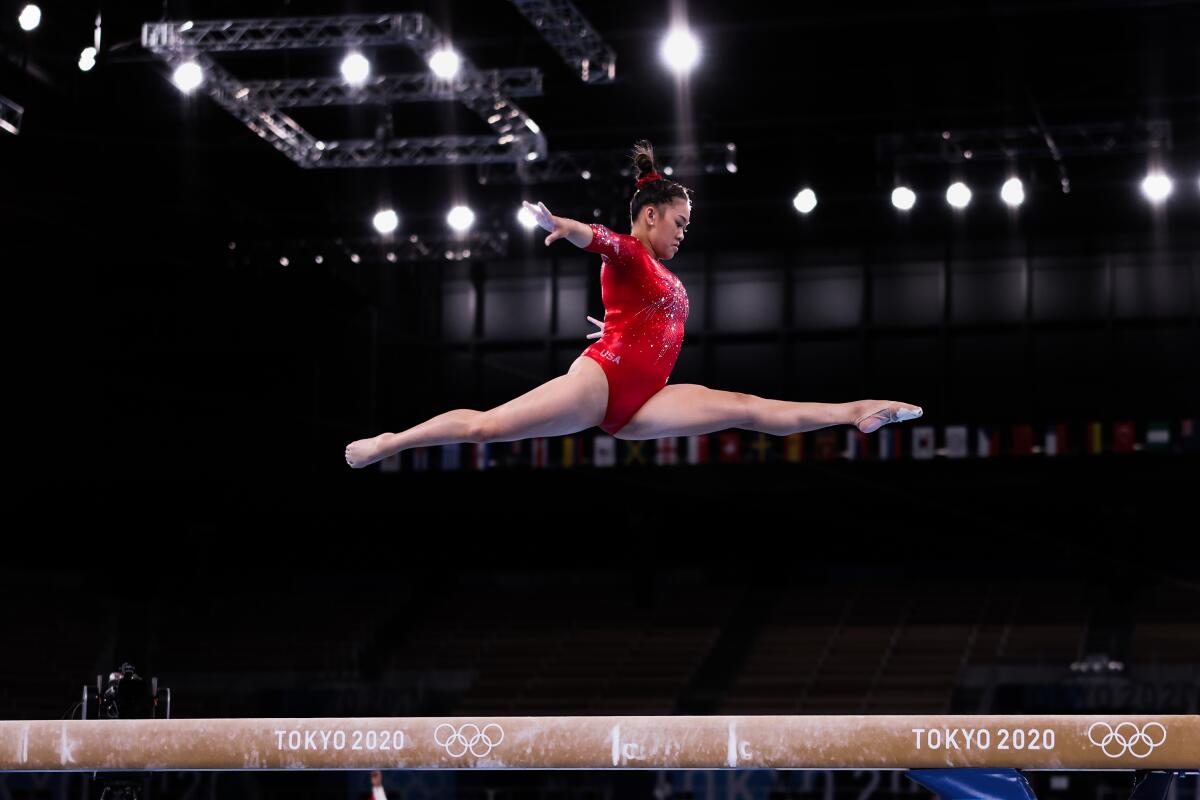
Thuc Nhi Nguyen, staff writer: I still love the Olympics. I just hate the TV coverage of the Olympics.
The inspiring athletes and the heartwarming moments are all still there. In some respects, there are even more opportunities for those types of stories after the year we all had. But it’s just too freaking hard to find anything in NBC’s tangled mess of broadcast and streaming coverage.
NBC’s social media team could easily help by starting every morning with a post that includes a schedule of that day’s events, how to watch each one and their times (in U.S. time zones). Tweet a new one every morning, pin it at the top of the @NBCOlympics Twitter feed, and repeat the next day.
During the first days of the Games, I was eagerly tuning in every night for the prime-time show but became frustrated when I saw that major blocks of time were tape-delayed. Then I would scroll through the channel guide to find other sports. Then those competitions were also replays. At that point, I was out.
Does enjoying the spectacle of the Olympics mean ignoring the issues they raise? The Times TV team explores how facing reality could help the Games.
It really doesn’t have to be difficult: Put live events on TV. Don’t shun the U.S. men’s basketball team to the Peacock app at 9:40 p.m. PDT behind a paywall when there are four to five channels broadcasting Olympic coverage at the same time, including some that are showing replays. When the U.S. baseball team is playing in the Olympics for the first time since 2008 and facing an elimination game, it should be on TV. There shouldn’t be a replay of a 24-hour-old basketball game on my screen instead.
For popular sports like gymnastics that were contested at odd hours in the United States, maybe a highlight package on the prime-time show is sufficient as long as there are easily accessible replays in their full form on demand. At that point, the suspense of who won is gone because we’ve all gotten the push notifications and breaking news alerts. It’s about showing the best moments and performances.
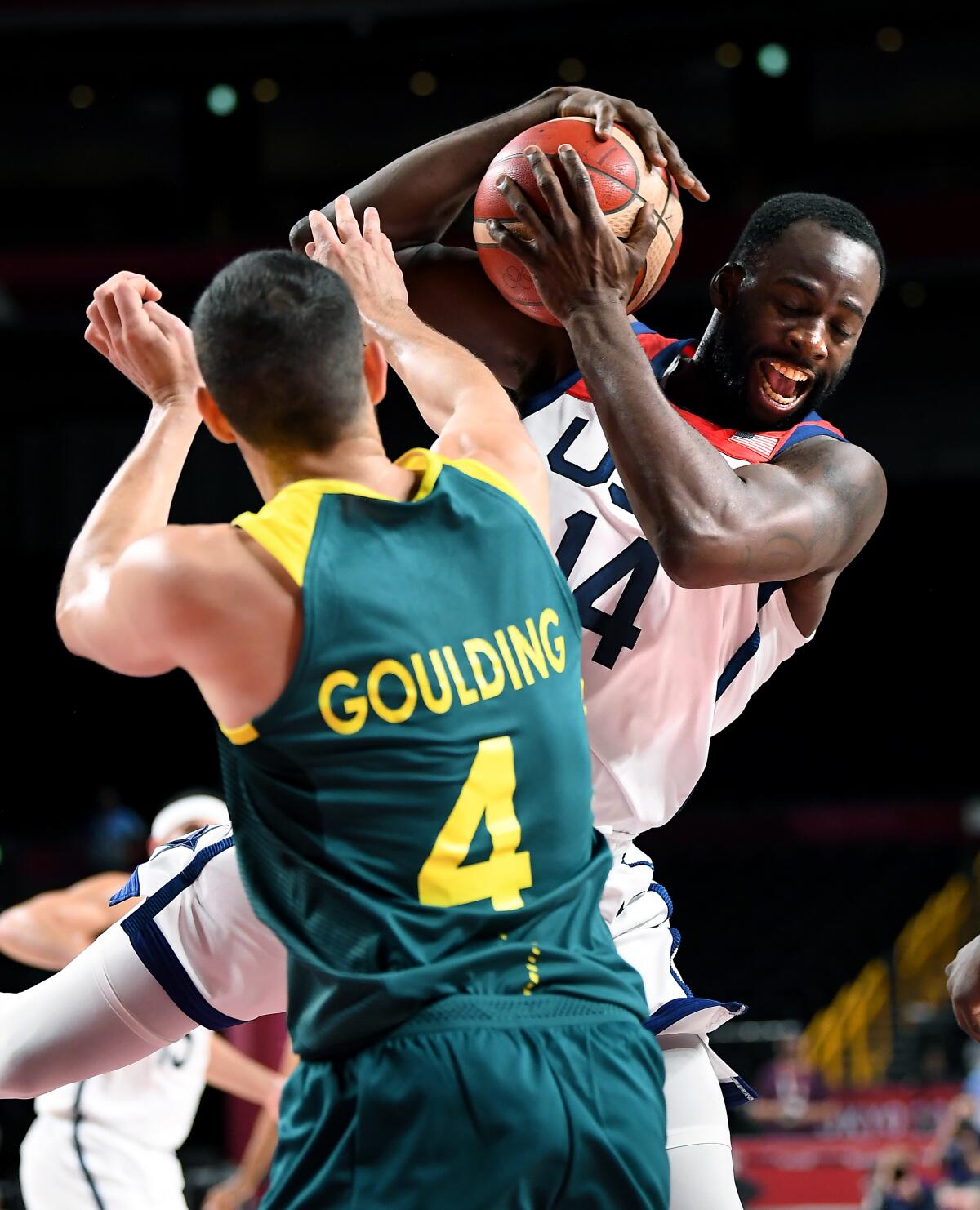
Eric Sondheimer, columnist: Watching the Olympic Games on TV is like trying to figure out what to eat at a Las Vegas buffet. There are so many choices if you invest time in clicking one of the numerous NBC platforms that are streaming events. My focus has been watching NBC 4 Los Angeles or USA Network in the early evening during live broadcasts, and even then it’s been confusing at times trying to figure out exactly what sports will be shown on a given night.
The best part of the broadcasts has been seeing parents, friends and family members cheering from remote sites. No one will forget the scene of Alaska high school students cheering on swimmer Lydia Jacoby’s gold medal. That was real drama seeing her hometown react in real time.
NBC has struggled to find a unique summer sport to capture the attention of fans, as curling does for the Winter Games, though there have been occasional highlights of archery, canoeing and surfing. And as a born-and-raised Southern Californian, it was fun to see skateboarding get some attention.
The Times TV team tuned in to NBC’s prime-time coverage of the Tokyo Olympics on Tuesday and broke down where it succeeded — and where it fell short.
Americans love track and field every four years, but let me say politely that NBC’s commentators, other than their No. 1 track commentator, Ato Boldon, have displayed surprisingly little knowledge of the sport. It’s as if they hired ex-athletes who might know about their individual event but nothing about other events.
Most concerning is a failure to adjust when news happens. On Monday night, one of the greatest Olympic races ever happened in the 400 hurdles: Norway’s Karsten Warholm, who set a world record, roared when he appeared on the track during introductions and literally shredded his jersey like a WWE wrestler at the end of the race. What a character he must be! It’s too bad we didn’t learn more about him. And unlike in swimming, where the competitors were immediately interviewed after winning gold, I waited and waited for one to come with Warholm. Finally, I turned the channel.
It’s not NBC’s fault if the predictions of who would win or advance to gold-medal competition didn’t come to pass, or the fact that some finals take place at 3 a.m. Pacific time because the competition is in Japan. But it is NBC’s responsibility to make tuning in easy and fun — and on that count it’s been hit and miss from my perspective.

Tracy Brown, staff writer: For as much as I have mixed feelings about certain aspects of the Olympics, I do still have a soft spot for them and wish NBC didn’t make the viewing experience so infuriating. It’s like they think being vague about the details of what time each sport will be shown during the prime-time block will force people to stick with the program until the event they are waiting for is finally shown.
Audiences are not like this anymore. We are used to entertainment that we can access on-demand. So I’m more likely to stick with a program if I know exactly what I am counting down toward. Keeping it vague means frustration and churn — as in, giving up and watching something else.
I’ve mentioned this before, but oftentimes I turned to NBCOlympics.com to watch live events or full replays of events I was interested in because it was much easier to find them there. No flipping between channel guides required.
My suggestion to NBC would be to really recalibrate the approach of its main prime-time show to make it the one thing you need to see if you want to be on top of everything Olympics. Maybe this means showing big events live if the timing works out. But it also can mean taking advantage of a time difference to create a full show that isn’t reliant on playing up some nonexistent mystery around the results. Pull multi-cam footage to create compelling highlight packages with the best angles. Use the time delay to craft a solid script that can provide context about the significance of what happened that can be hard to include during live coverage. Find that heartfelt story to spotlight among the athletes that competed that day.
Making old news compelling is pretty impossible. So the best way forward is to use the news to make the most compelling show you can make.
More to Read
The complete guide to home viewing
Get Screen Gab for everything about the TV shows and streaming movies everyone’s talking about.
You may occasionally receive promotional content from the Los Angeles Times.
